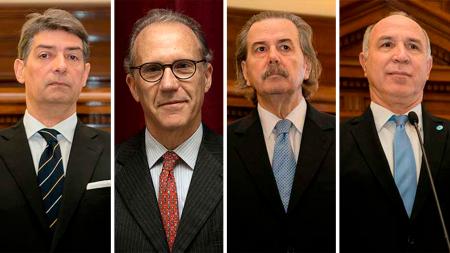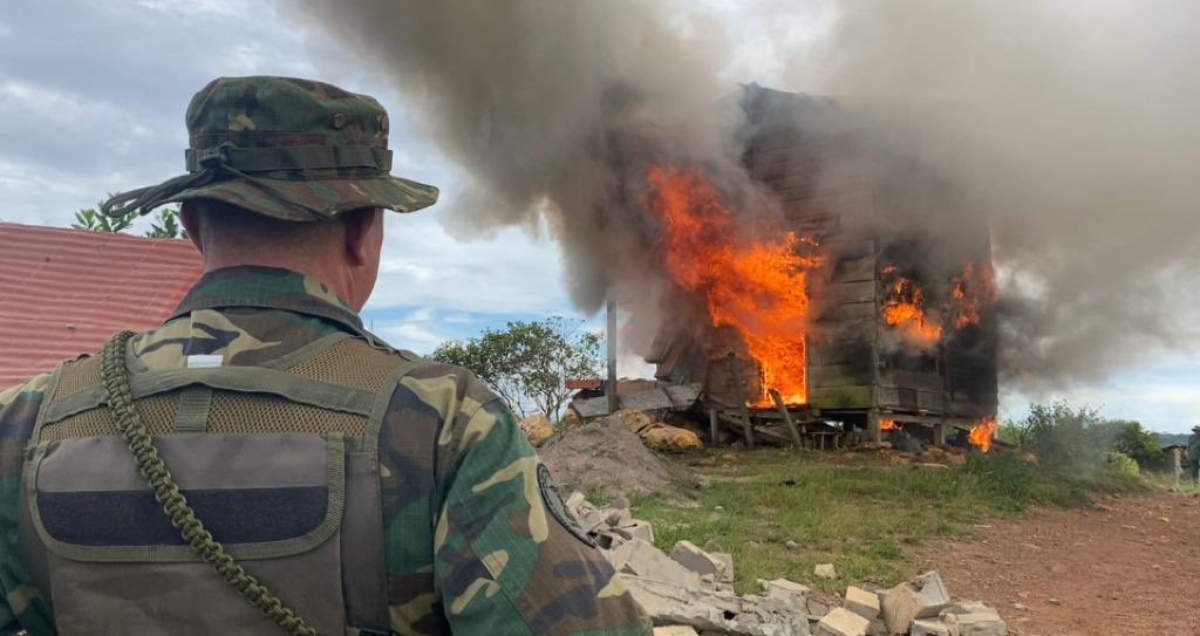The imminence of a decisive ruling on the tax co-participation that corresponds to the city of Buenos Aires will leave the Supreme Court this week at the center of the political scene, while on Wednesday it will swear in the deputies in the Council of the Magistracy, in a new chapter of the conflict of powers with the Senate.
The Court has yet to decide what amount of co-participation the city of Buenos Aires receives after Mauricio Macri, at the beginning of his administration, raised what he received from 1.40% to 3.75 of the mass of co-participating taxes.
In September 2020, by a decree that would later be ratified by Congress, President Alberto Fernández reduced the percentage of the City by 1 point.
Against this measure, the Buenos Aires head of government, Horacio Rodríguez Larreta, went to the Court because conflicts between provinces and the central government fall within its jurisdiction, and established a 1.2 percent tax on credit card transactions in the City to offset the loss.
This week it is estimated that the Court will define the number of the Buenos Aires percentage in one of the most significant conflicts from the economic point of view between the ruling party and the opposition.
This week it is estimated that the Court will define the number of the Buenos Aires percentage in one of the most significant conflicts from the economic point of view between the ruling party and the opposition
In the hearings called by the Court, the representatives of the Nation and the City did not reach an agreement but they argued on the basis of an “excess” increase by Macri for the Capital to attend to the transfer of powers from the central government.
The president of the Court, Horacio Rosatti, seeks a majority vote that sets the percentage with at least two more signatures in addition to his ownand for this the court took more time than, in principle, it said it would use.
The conflict for the integration of the Council
Added to this high-impact ruling that the Court is preparing is the unexpected conflict of powers that arose between Justice and the Legislative Branch for representation in the Judicial Council.
Rosatti and his colleagues on the Court questioned, in a decision last November, the way in which the Senate put together its blocs to choose the four representatives.
The Upper House ratified his chosen one, Martín Doñate, and then the Court suspended the oath of the four representatives of the Senate, appealing to the judicialization that the opposition senator who claims the bench, Luis Juez, had initiated.
This way of suspending the integration of the Judicial Council until the Justice, that is, the Court itself, resolves the presentation of the Judge, complicates Rosatti’s claim to speed up the election of magistrates in the National and Federal jurisdictions.
Since the integration of the Council was declared unconstitutional in December 2021, the process of appointing judges has completely stalled: in one year only a handful of shortlists of judges for the interior of the country were approved without dissent, when there are three vacant Federal Justice courts.
On the way to advance as far as possible, The Court decided that this Wednesday at 11 o’clock the four representatives of the Chamber of Deputies are sworn ineven though the designation was withdrawn by the president, Cecilia Moreau, and the president of the Frente de Todos (FdT) bloc, Germán Martínez, challenged the designation in court.
With the swearing in of Rodolfo Tailhade, Vanesa Siley (FdT), Álvaro González (PRO) and Roxana Reyes (UCR), the Council will be made up of 16 representatives who would have the improbable number to approve shortlists but a certain legitimacy deficit that will surely be prosecuted.








